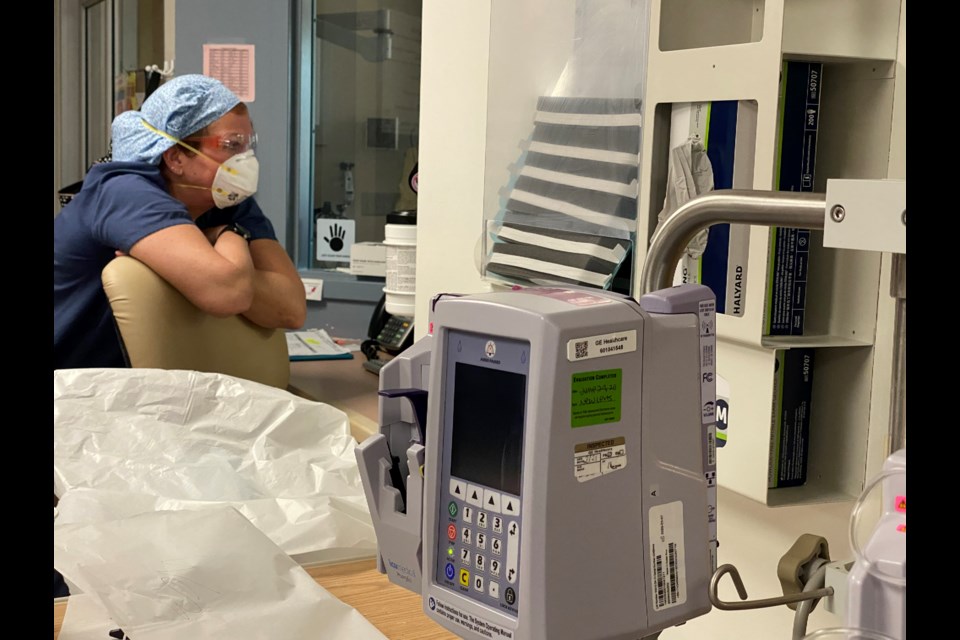With Ontarians in the depths of a record-breaking third wave, the impact on mental health after a more than year-long pandemic is something local health officials believe will be felt for a long time to come.
“We don’t know what another wave will look like, but whether it’s a fourth wave or just post-pandemic, many of us are discussing the impact the pandemic has had on our mental health as a society, as patients with mental health diagnoses and for health-care workers in the system,” said Janice Skot, president and chief executive officer at Royal Victoria Regional Health Centre (RVH).
The Barrie hospital has attempted to find small ways to help.
“We’ve had a... resiliency committee, which includes a great cross-section of the organization, come together to come up with ideas to implement and try and help people cope with the fatigue they’re feeling (and) the isolation," she said.
Addressing the mental health of staff and patients is extremely important, Skot said.
“We often talk about staff, physicians and their families and we have a large group of people who are really isolated because they live alone,” she said. “There are lots of discussions about what we’re going to do about this, but there’s no doubt the echo of the pandemic, in the mental health area, and the resources that are going to be required to help people move through this post-pandemic, is going to be substantial.
"I know it’s being discussed at the provincial level and beyond because of the need," Skot added.
The hospital has also found its mental health patients have also been struggling during the pandemic because of the isolation, as well as the public health measures the public is being asked to follow, she noted.
“We are seeing more of that presenting either in our emerg department or in our large adult mental health unit, but also in our child and health mental health unit, and in pediatrics, where we are seeing more patients being admitted with eating disorders,” Skot said.
“This is going to be the next phase of this pandemic, and it has to have a large group think tank to make sure that we are doing everything possible to address these issues as we move forward," she added.
With visitors restrictions in place on and off over the course of the pandemic, Skot said the organization has created a few strategies to try to help patients stay in touch.
“Because families can’t come in, we’ve ensured that our units have iPads. We are hoping to be able to redeploy some people to help us make sure we make a connection between the patient and the family virtually through the iPad," she said.
They have also created a volunteer program with the hospital’s specialized seniors group where a volunteer has offered to see a patient, through an iPad. Skot said the volunteer is able to have a conversation with that patient, which can help them not feeling as isolated when they’re not allowed to have any visitor.
“We are trying to use some of our technology to bridge that gap," she said. "We know it doesn’t replace it, but there are some special strategies that we’ve put in place to try to ease that pain and that burden.”
